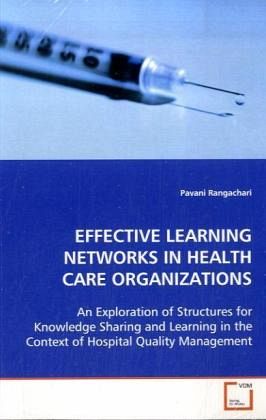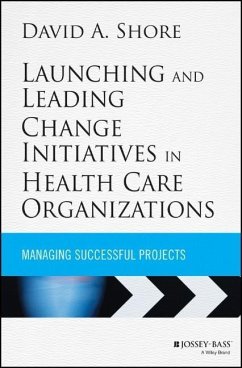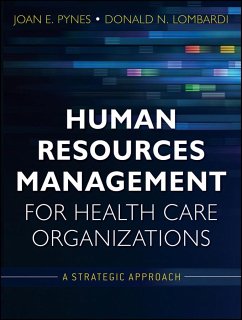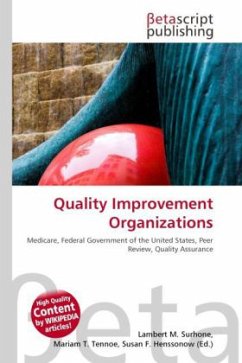
EFFECTIVE LEARNING NETWORKS IN HEALTH CARE ORGANIZATIONS
An Exploration of Structures for Knowledge Sharing and Learning in the Context of Hospital Quality Management
Versandkostenfrei!
Versandfertig in 6-10 Tagen
52,99 €
inkl. MwSt.

PAYBACK Punkte
26 °P sammeln!
Today, health care organizations (HCOs) face a new era of "value driven health care purchasing," which emphasizes: 1) quality reporting and transparency, 2) health IT adoption, 3) pay-for performance, and 4) systems improvement.What are the defining characteristics (i.e., structures and systems) of HCOs that learn to adapt to such a dramatically changing environment? This work addresses this and other questions by focusing on one of the four areas of value-driven health care, i.e., quality reporting. A critical task for managers in complex systems has been said to be the creation of effective ...
Today, health care organizations (HCOs) face a new
era of "value driven health care purchasing," which
emphasizes: 1) quality reporting and transparency,
2) health IT adoption, 3) pay-for
performance, and 4) systems improvement.
What are the defining characteristics (i.e.,
structures and systems) of HCOs that learn to adapt
to such a dramatically changing environment? This
work addresses this and other questions by focusing
on one of the four areas of value-driven health
care, i.e., quality reporting.
A critical task for managers in complex systems has
been said to be the creation of effective structures
for knowledge sharing and collective learning. This
work integrates complex systems theory and knowledge
network theory to develop a framework for
understanding the structure of effective knowledge
sharing networks in HCOs. The framework is then used
to evaluate knowledge sharing and learning
structures of HCOs, from the perspective of their
performance in quality reporting.
This work should be of interest to both scholars and
practitioners of health care management, including
professors of health management and directors of
quality improvement.
era of "value driven health care purchasing," which
emphasizes: 1) quality reporting and transparency,
2) health IT adoption, 3) pay-for
performance, and 4) systems improvement.
What are the defining characteristics (i.e.,
structures and systems) of HCOs that learn to adapt
to such a dramatically changing environment? This
work addresses this and other questions by focusing
on one of the four areas of value-driven health
care, i.e., quality reporting.
A critical task for managers in complex systems has
been said to be the creation of effective structures
for knowledge sharing and collective learning. This
work integrates complex systems theory and knowledge
network theory to develop a framework for
understanding the structure of effective knowledge
sharing networks in HCOs. The framework is then used
to evaluate knowledge sharing and learning
structures of HCOs, from the perspective of their
performance in quality reporting.
This work should be of interest to both scholars and
practitioners of health care management, including
professors of health management and directors of
quality improvement.












